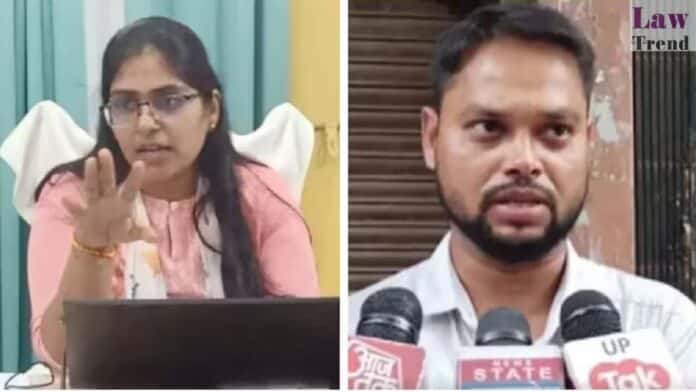The Allahabad High Court has issued notice to Uttar Pradesh PCS officer Jyoti Maurya, following an appeal filed by her estranged husband, Alok Kumar Maurya, challenging the dismissal of his maintenance plea by a family court earlier this year.
A division bench comprising Justices Arindam Sinha and Justice Yogendra Kumar Srivastava took up the matter and scheduled the next hearing for August 8, 2025.
Alok Maurya, employed as a sanitation worker (safai karmachari) in the Panchayati Raj department since 2009, has approached the high court seeking monthly maintenance from Jyoti Maurya, citing his low income and deteriorating health. His application under Section 24 of the Hindu Marriage Act was previously rejected by the family court in Prayagraj on January 4, 2025.
In his high court appeal, Alok contends that despite supporting Jyoti’s education and career aspirations—including her journey to clearing the prestigious PCS examination and appointment as an SDM in 2015—he has been left struggling financially. He alleges that after Jyoti’s administrative appointment, her attitude toward him and his family shifted, leading to estrangement.
During the hearing, Alok’s counsel emphasized his client’s modest earnings and health issues as grounds for spousal maintenance. However, as the appeal was filed with a delay of 77 days, the legal team also submitted a request for condonation of delay, prompting the court to issue notice to Jyoti Maurya on both the delay and the appeal itself.
The court further directed Alok to submit an English translation of the contested family court judgment to facilitate proceedings. Notably, Jyoti Maurya has also filed for divorce in the Prayagraj family court, and the maintenance request emerged during the ongoing divorce proceedings.
This legal battle has drawn public attention due to the contrasting social and professional positions of the estranged couple—a grassroots sanitation worker and a senior administrative officer. The high court’s decision to admit the appeal keeps alive questions around spousal maintenance rights, especially in cases where the wife is the higher-earning partner.
As the case moves toward its next hearing in August, it is poised to spotlight evolving gender dynamics in maintenance laws and marital responsibilities in India’s legal landscape.




